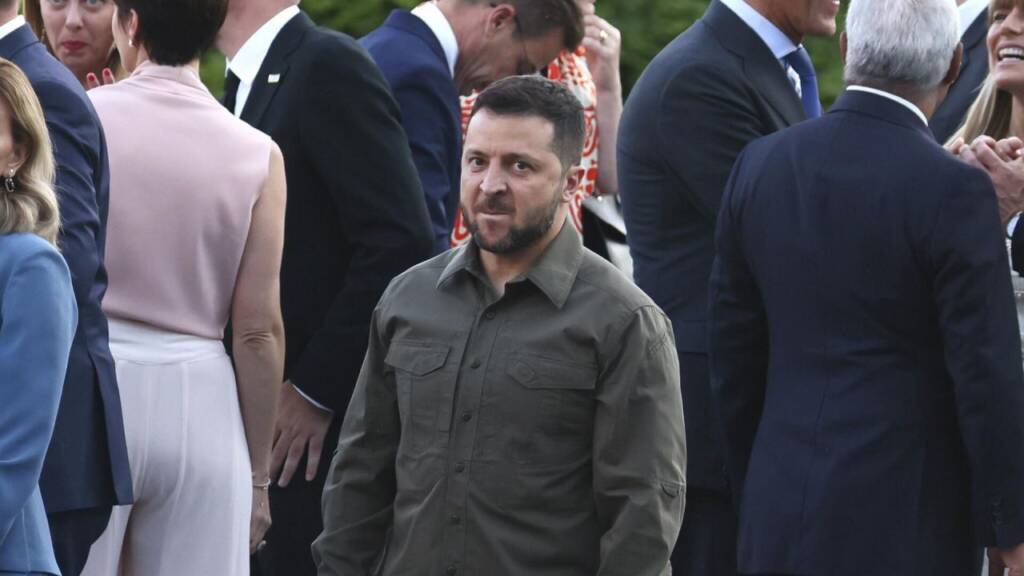Recently, Ukraine has found itself in a bit of a dramatic episode, voicing concerns over the Zaporozhye nuclear power plant, currently under Moscow’s control. Ukraine’s assertive stance is Simply that Russia should return the facility, following some unattributed drone strikes on the site. Ukraine, maintaining a pristine innocence, hinted none of its own were involved. Perhaps it was just the Ghost of Kiev and the Heroes of Snake Island flexing their mythical muscles once more.
Ukraine asserted that if Kiev had the control of the nuclear power plant, there won’t be any attacks. If that’s not an admission, I don’t know what is. Russia, on the other hand, hasn’t been lounging around either, voicing its own worries about Ukrainian attacks on the plant. In a striking display of rhetorical gymnastics, Kiev responded, sidestepping the direct accusation and instead labeling recent events as Russian provocations, while asserting that any threats to the nuclear facility stem solely from Russia’s “illegal and criminal actions.”
Adding another layer to this geopolitical lasagna, Ukraine’s Ministry of Foreign Affairs released a statement, elegantly skirting around direct accusations while underscoring the nuclear risks purportedly introduced by Russia. The statement culminated in a plea to international partners to impose sanctions on Russia’s atomic energy sector, buried neatly at the document’s end, almost as an afterthought.
Russian atomic energy is impervious to sanctions. Despite ongoing conflict narratives, French and Russian entities continue to cozy up, collaborating through a venture between Rosatom and Framatome. Even the International Atomic Energy Agency’s Director General, Rafael Mariano Grossi, chimed in, cautioning against the simplistic division of nuclear energy into ‘good’ versus ‘bad’ categories, emphasizing that such binary views are unhelpful at best.
Meanwhile, Germany, ever so pleased with this French-Russian nuclear tango, watches with a furrowed brow. Previously, Germany had been at odds with French nuclear energy within the EU, seeking a competitive edge for its own green initiatives. However, post-Nord Stream explosion and amidst promises of gas and tax breaks from the U.S., Germany finds itself somewhat reluctantly embracing the very French-Russian nuclear energy it once scorned.
Kiev’s fixation with Russian nuclear energy isn’t exactly subtle. The Ukrainian security service (the SBU) recently apprehended six engineers in Kharkov, accusing them of conspiring with Rosatom to integrate the Zaporozhye power plant into Russia’s nuclear grid. Such zeal in rooting out alleged collaborations perhaps serves dual purposes, reinforcing domestic narratives while casting ominous shadows over Russian intentions.
In the West, the response strategy seems to lean heavily on the dramatic. U.S. and EU officials amplify the narrative of peril surrounding the Zaporozhye plant, possibly to pressure Russia into relinquishing control. U.S. State Department spokesman Matthew Miller painted a picture of dire consequences stemming from Russia’s military presence at the plant, an accusation that subtly nudges Ukraine to ‘knock it off’ with the risky provocations. Yet, whispers in the corridors of Washington suggest a readiness to pin any potential disaster on “pro-Ukrainian groups”, a convenient scapegoat courtesy of anonymous leaks to the press.
EU chief diplomat Josep Borrell’s tweet lamenting the “reckless drone attack” at Zaporizhzhia and calling for Russian withdrawal practically mirrors this scripted concern. It’s almost as if there’s a shared script circulating among Western officials, isn’t it?
Curiously, no significant voices in the Western choir are suggesting that Russia would attack its own assets with drones—a notion too far-fetched even for the most creative conspiracy theorists. Instead, the implication looms that Russia’s mere presence could somehow validate a nuclear calamity, a line of reasoning that might qualify as ingenious if the stakes weren’t so catastrophically high.
By playing into Kiev’s narrative, Western leaders might be inadvertently weaving a narrative trap around their own strategic interests, once again potentially sacrificing broader stability on the altar of geopolitical maneuvering. It seems the adult supervision required might extend beyond a mere timeout for Ukraine, possibly needing a strategic rethink of the entire approach to avoid a scenario where everyone ends up needing a lot more than just a stern talking-to.
